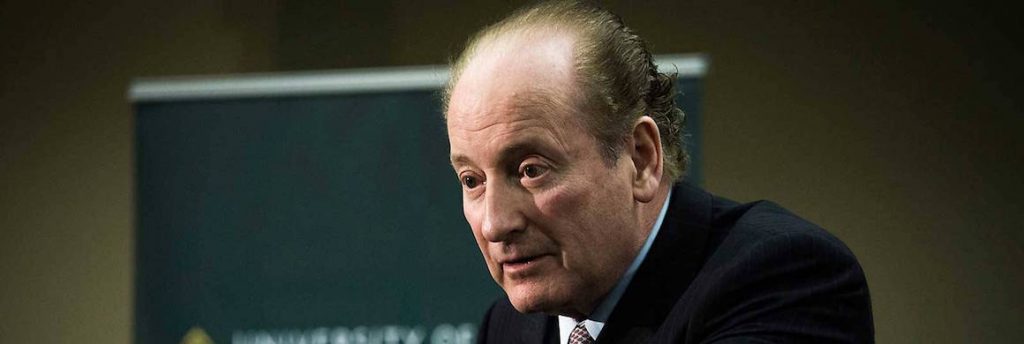During a USF Silk Speaker Series guest talk at the University of San Francisco School of Management, Nobel Prize-winning economist Robert Merton emphasized the impending crisis of our “broken retirement system.”
Merton, who received a ’97 Nobel for “developing new method to determine the value of financial derivatives,” says our current system’s dysfunction relates to its inability to accommodate the scores of retirees who expect to live 10-20 years longer than the previous generation and retire at a higher standard living” after working “the same number of years as their parents.”
Merton says we can only currently get two out of three but he’s got an ace up his sleeve to snag that third element: shift the focus for retirees, professionals and regulators from asset values to income.
Merton believes if we have a clearer sense of our objective, we’ll also have a clearer sense of our progress. “Suppose the saver learns that she has a 54 percent chance of achieving her desired income in retirement. Like a high cholesterol number, that relatively low probability serves as a warning. ‘What can she do to improve her outlook?'”
Merton wants future retirees to ultimately concern themselves with just three questions:
1) How much monthly income do you need?
2) How much can you currently contribute?
3) How long do you plan to work?
Merton noted that the upcoming wave of generational retirement will be the next “great crisis,” considering Baby Boomers are the largest generation in the United States since the 1920s. The 46 million Americans will, unfortunately, have a degree of uncertainty when it comes to their retirement and social security, with the potential of changes in the country’s regulatory structure up for debate.
Prior to his election victory, President Donald Trump argued that U.S. citizens who earn less than $25,000 annually could be potentially exempt from taxation. This would mean that senior citizens well-into retirement could save more money, but it remains to be seen if this policy will ever be implemented, or if social security ultimately changes. If not, retirement may become the grave concern Merton hinted at even sooner.
